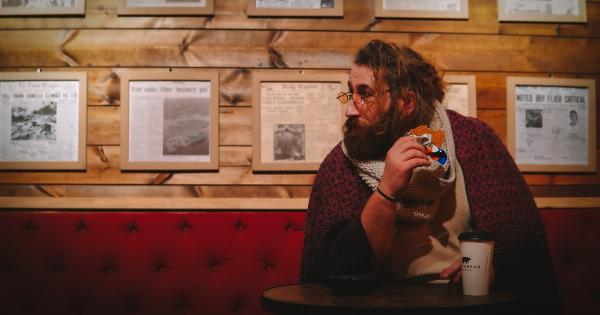Sleep apnea is a common sleep disorder characterized by pauses in breathing during sleep. It can cause loud snoring, restless sleep, and excessive daytime sleepiness.
Traditional treatment for sleep apnea involves the use of Continuous Positive Airway Pressure (CPAP) machines that require wearing a mask over the nose or mouth during sleep. However, many people find the masks uncomfortable and inconvenient. In this article, we will explore maskless sleep apnea solutions that offer alternative options for managing this condition.
1. Oral Appliances
One effective maskless solution for sleep apnea is the use of oral appliances. These devices are custom-made by dentists and are designed to hold the lower jaw slightly forward, thereby keeping the airway open during sleep.
Oral appliances are comfortable to wear and can be a good option for people who cannot tolerate CPAP machines. They are also portable and easy to travel with.
2. Inspire Therapy
Inspire therapy is an innovative treatment option for sleep apnea that does not require a mask. It involves the implantation of a small device under the skin of the neck and chest.
This device stimulates the muscles that control the tongue and other airway structures, helping to keep the airway open during sleep. Inspire therapy is a highly effective and discreet solution for sleep apnea.
3. Positional Therapy
Positional therapy involves training individuals to sleep in a specific position that helps keep the airway open.
For example, some people experience sleep apnea only when they sleep on their back, so learning to sleep on their side can alleviate the symptoms. Positional therapy may involve the use of special pillows or devices that help maintain the desired sleeping position.
4. Weight Loss
Excess weight can contribute to the development and severity of sleep apnea. Losing weight can significantly improve sleep apnea symptoms and reduce the need for mask-based treatments.
Incorporating a healthy diet and regular exercise into one’s lifestyle can help shed excess pounds, providing a natural solution for sleep apnea.
5. Nasal Dilators
Nasal dilators are devices that help open up the nasal passages, making it easier to breathe during sleep. These devices can be inserted into the nostrils and work by expanding the nasal passages, reducing nasal congestion and resistance to airflow.
Nasal dilators are a convenient and non-invasive maskless solution for sleep apnea.
6. Tongue Retaining Devices
Tongue retaining devices are designed to hold the tongue in a forward position, preventing it from falling back and obstructing the airway during sleep.
These devices can be an effective alternative to mask-based treatments, especially for individuals with mild to moderate sleep apnea. Tongue retaining devices are customized to fit each individual’s mouth for optimal comfort and efficacy.
7. Surgery
In severe cases of sleep apnea, surgery may be considered as a maskless solution. There are various surgical procedures available, such as uvulopalatopharyngoplasty (UPPP), which involves removing excess tissue in the throat to widen the airway.
Surgery is usually reserved for individuals who have not responded well to other treatments or have anatomical abnormalities contributing to their sleep apnea.
8. Lifestyle Changes
Simple lifestyle changes can also play a significant role in managing sleep apnea without the need for masks.
Avoiding alcohol and sedatives, losing weight, regular exercise, and establishing a consistent sleep routine can all contribute to better sleep quality and reduced sleep apnea symptoms.
9. Acupuncture
Acupuncture, an ancient Chinese therapy, has been explored as a potential treatment for sleep apnea. It involves the insertion of thin needles into specific points on the body to stimulate energy flow and balance.
While more research is needed to determine its effectiveness, some individuals with sleep apnea have reported improvements in their symptoms after acupuncture sessions.
10. Cognitive Behavioral Therapy
Cognitive Behavioral Therapy (CBT) is a non-medical approach that can be beneficial for individuals with sleep apnea. CBT helps identify and address the underlying psychological factors that contribute to sleep disturbances.
By promoting healthier sleep habits and addressing related issues such as anxiety and stress, CBT can complement other maskless solutions for sleep apnea.



























